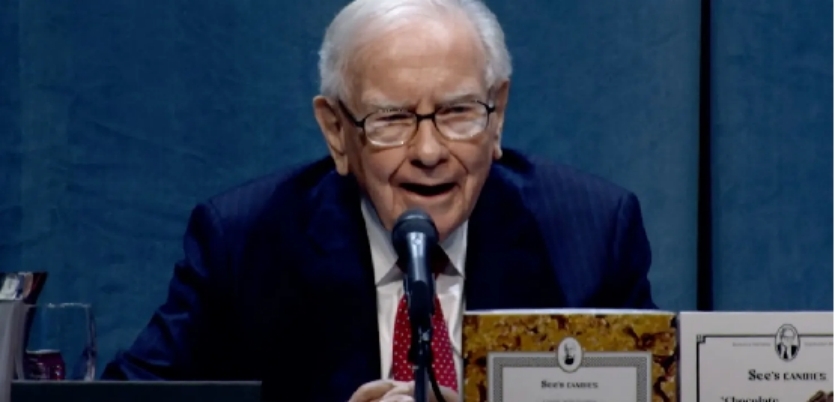
Last week, Trump announced that a comprehensive 25% tariff on goods imported from Mexico and Canada would take effect on March 4th, and China would impose an additional 10% tariff on the same day. And China has also vowed to retaliate.
Since Trump took office, tariff adjustments have been made to multiple countries, and the surge in tariffs has naturally caused dissatisfaction among many countries. Meanwhile, the already mild inflation in the United States may be exacerbated by outrageous tariff policies. Legendary investor Warren Buffett made a rare comment on Donald Trump's tariffs, stating that punitive tariffs could trigger inflation and harm consumers.
Tariffs are actually, we have a lot of experience. To some extent, they are an act of war, "Buffett said in an interview with CBS News. Over time, they become taxes on goods. What I mean is, the tooth fairy doesn't pay them! "Buffett said with a smile. And then what? In economics, you always have to ask this question. You always say, 'And then what?' This marks the first public statement by the 94 year old 'Oracle of Omaha' about Trump's trade policies. His corporate group has large enterprises in the fields of insurance, railways, manufacturing, energy, and retail. Buffett has been in defensive mode over the past year as he quickly sold stocks and raised record amounts of cash.
The tariff policy of the United States is pushing up the price level and expectations of inflation in the United States. Since the beginning of this year, steel prices in the United States have risen by 25%. In terms of automobiles, the average selling price of new cars in the United States is expected to exceed $50000 in March. In terms of electronic products, some laptop manufacturers are preparing to raise prices by 10% in the US market in March.
In February of this year, the US government announced adjustments to import tariffs on steel and aluminum, imposing a 25% tariff on all steel and aluminum imported into the United States. According to statistics, the benchmark price of steel in the United States has exceeded $900 per ton, with a cumulative increase of about 25% this year. The sharp rise in US steel prices is mainly due to the adjustment of US tariff policies. The United States imports a large amount of steel every year, and the new tariff policy has led to an increase in import costs, which in turn has pushed up steel prices.
Not long ago, the United States announced that it would impose a 25% tariff on goods imported from Mexico and non energy goods imported from Canada. The US automobile manufacturing industry imports a large number of automotive parts from Mexico and Canada, and the increase in tariffs has led to higher costs of these parts, ultimately resulting in higher prices for cars.
Not only that, but electronic products in the United States will also see an increase, as there are no such manufacturing bases in the United States, although the US government is promoting the return of electronic products, integrated circuits, and other manufacturing industries to the United States. But currently, the vast majority of electronic manufacturing bases are located in China, other Asian countries, or Mexico.
Warren Buffett, the chairman and CEO of Berkshire Hathaway, had already expressed detailed opinions on the outbreak of the trade conflict during Trump's first term in 2018 and 2019, warning that the radical actions of the Republican Party could have negative consequences globally. When asked about the current economic situation in an interview with CBS, Buffett avoided talking and did not directly comment.
At present, there is a trend of overall rising inflation expectations in the United States, and adjustments to tariff policies may result in a lack of output in both curbing inflation and increasing manufacturing output.

报告显示,中国电力投资加速增长,预计2024年电网基建投资将超过5300亿元。
近日,市场迎来了一则引人注目的消息:工业巨头3M公司(MMM.N)在本周五公布了其季度业绩报告,随后股价飙升至近两年来的
最近,外媒给OpenAI算了笔账,今年可能要血亏50亿美元。
近日,巴黎奥运会和世界铁人三项协会联合发布了一项重大决定,宣布因塞纳河水质污染问题,原定于近期进行的奥运会铁人三项首次下
当地时间7月18日,法国巴黎发生了一起令人震惊的持刀袭警事件。
近期,一则重大消息在国际舞台上引起轩然大波,马来西亚宣布加入金砖国家。
调查发现,互联网和智能手机的使用干扰了韩国近五分之一学生的生活。